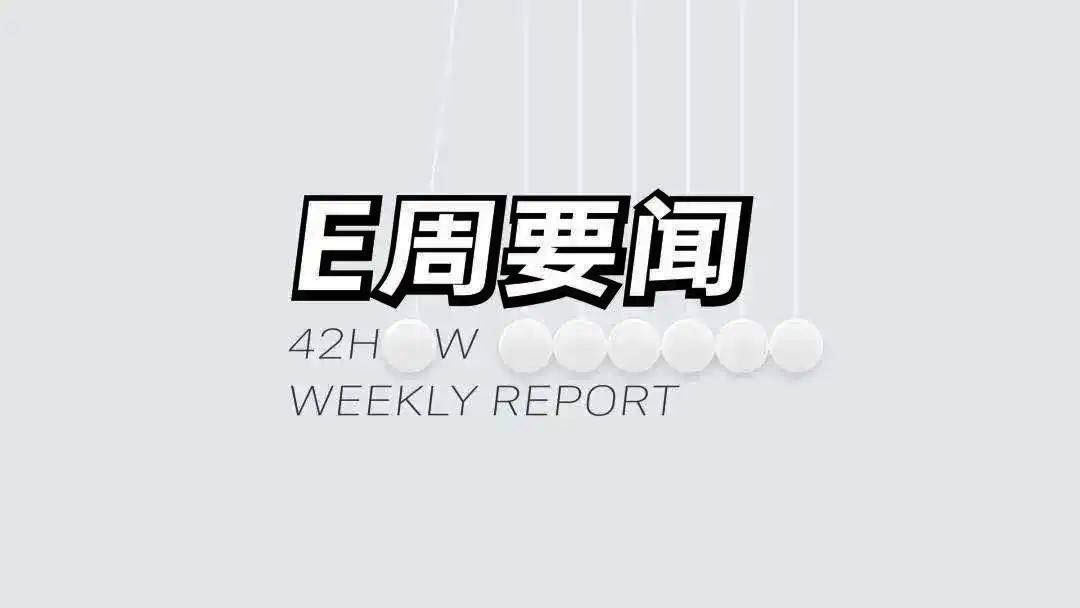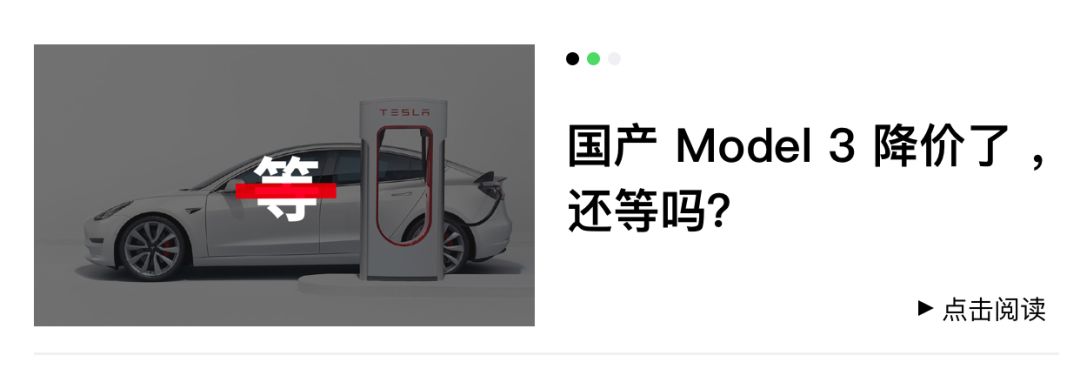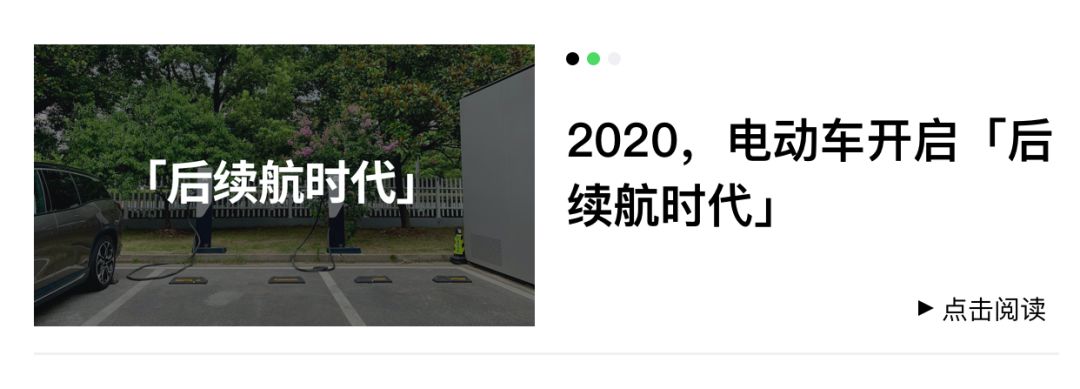PART 1 Weekly Index
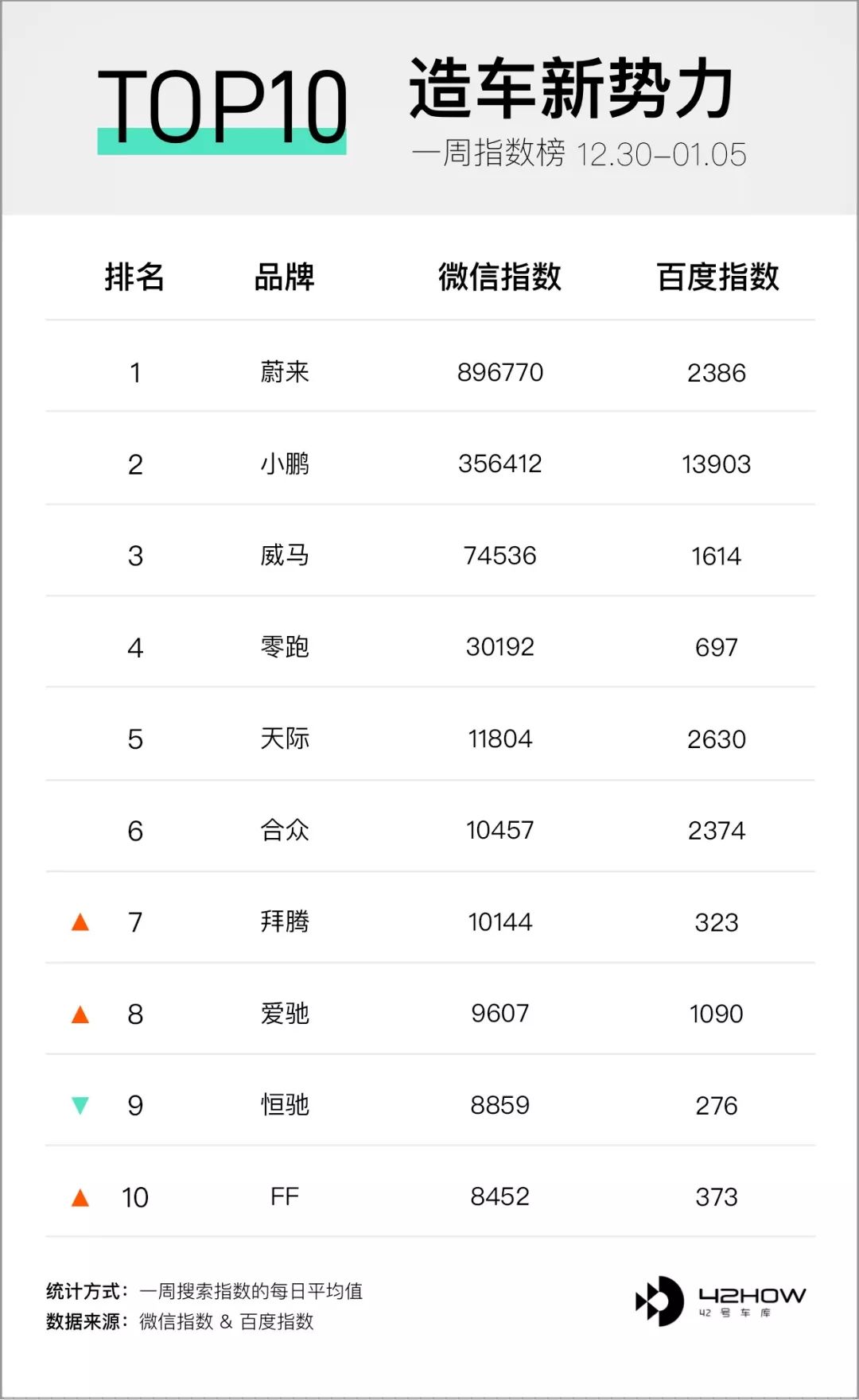
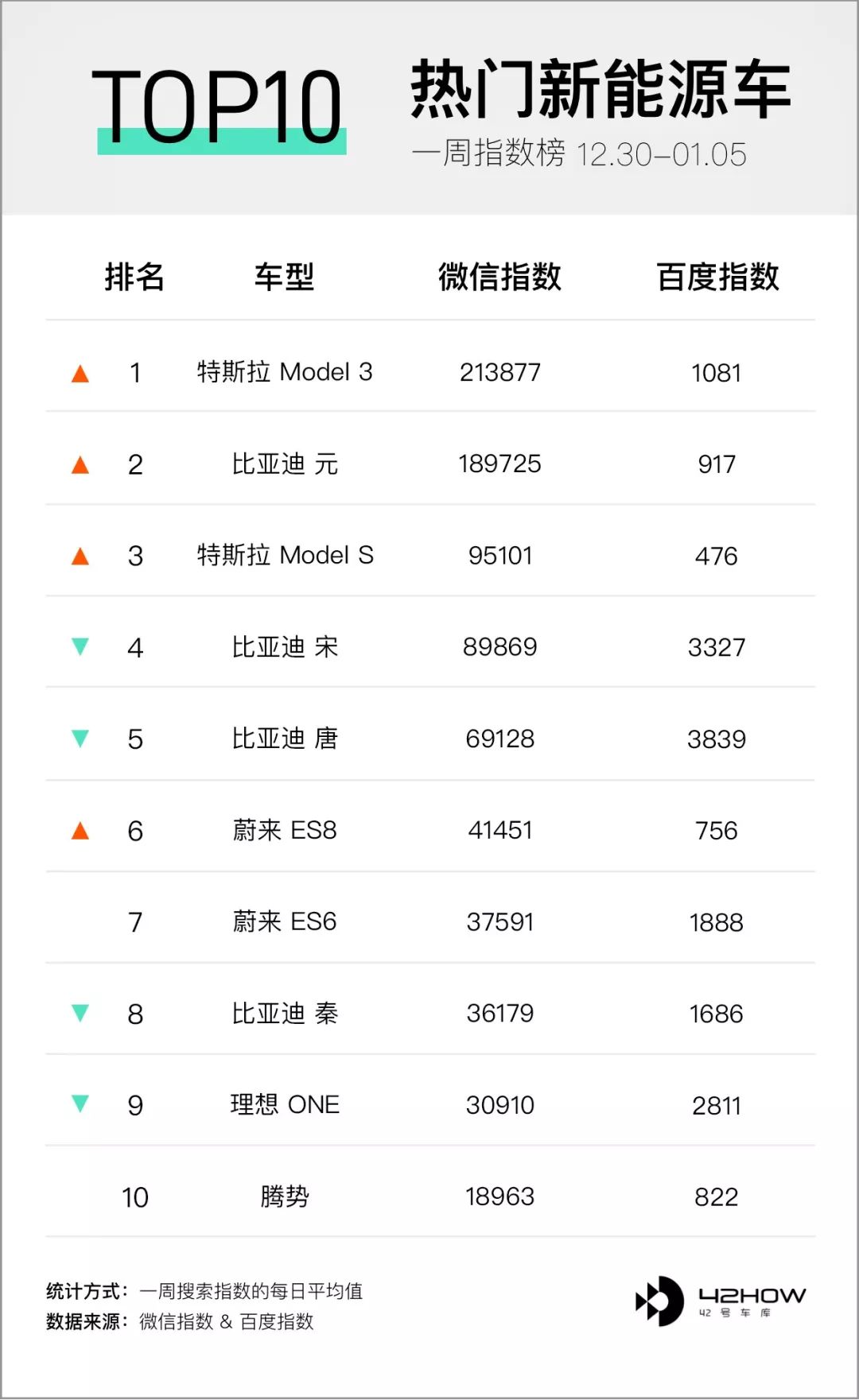
PART 2 Weekly News
① Domestic Model 3 officially delivered, prices dropped to 2.9905 million yuan
On December 30th, the Shanghai Tesla Super Factory officially delivered the domestic version of the Model 3, with a total delivery of 15 units, all of which were purchased by Tesla employees. Vehicles for other customers will begin delivery on January 7th, 2020.
Just 4 days after the employee’s car delivery, Tesla officially lowered the price of the domestic version of Model 3, with a subsidized price of 2.9905 million yuan.
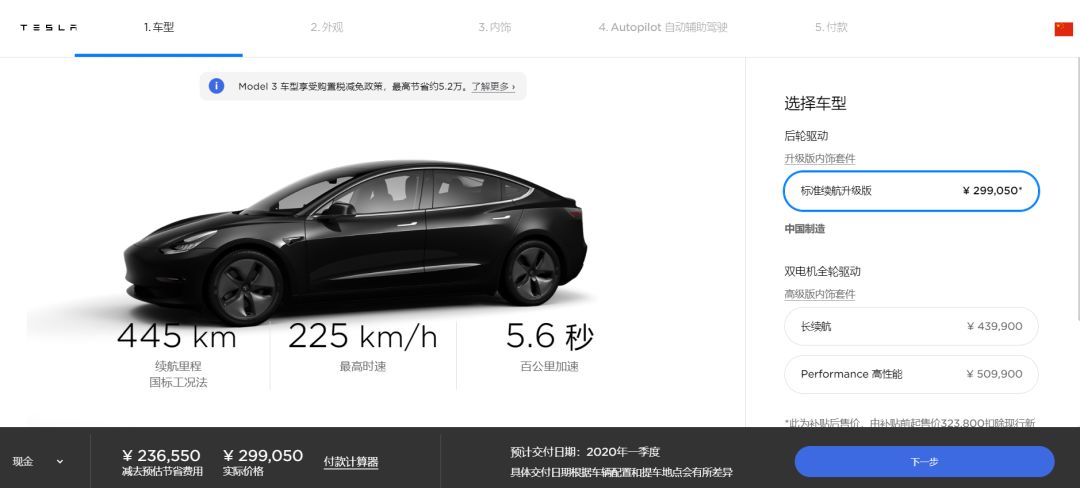
Comment: If building a super factory in China represents Tesla’s officially “killing its way to the doorstep”, then this price cut is Musk’s “first knife” to many domestic competitors. At the same time, in order to optimize the customer experience, Tesla’s global vice president, Tao Lin, said in an interview after the delivery ceremony that faster V3 Supercharging stations will be gradually promoted to the whole country, and replace the existing charging stations.
Earlier, we have tested its specific performance in Shanghai Jinqiao, the charging speed has been significantly improved compared to V2. This further shortens the distance from fuel replenishment speed of gasoline vehicles. It is hard not to imagine how fast it will be when V4 and V5 come.
② NIO releases Q3 financial report
On December 30, 2019, NIO auto officially released its Q3 financial report, and the core information is as follows:
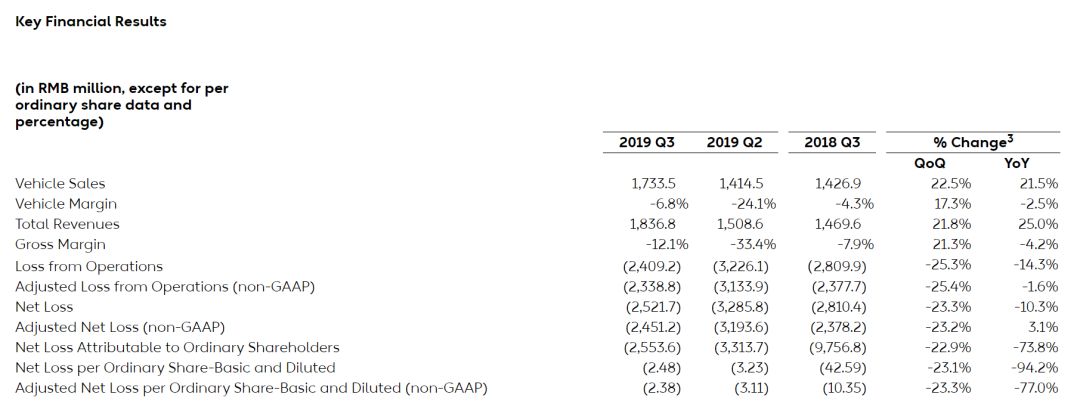
- In the third quarter, a total of 4,799 vehicles were delivered, of which ES8 was 603, ES6 was 4,196, an increase of 35.1% compared to the previous quarter. Vehicle sales brought the company a total revenue of 1.7335 billion yuan, an increase of 22.5% compared to the previous month, and an increase of 21.5% compared to the same period last year.- The total sales revenue in the third quarter reached 18.368 billion yuan, a year-on-year increase of 25%;
- The sales and management expenses in the third quarter were 11.644 billion yuan, a decrease of 18.1% compared with the previous quarter and a decrease of 30.3% compared with the same period last year;
- The gross profit margin in the third quarter was -12.1%, which was -33.4% in the second quarter, and the gross profit margin after deducting the recall provision was -10.9%, which was -7.9% in the same period last year;
- As of September 30, 2019, NIO had a total of 19.067 billion yuan in cash, cash equivalents, restricted cash, and short-term investments held. The revenue is expected to increase by 53% compared to the third quarter;
- NIO is expected to deliver a total of 8,000 ES8 and ES6 vehicles in the fourth quarter, an increase of approximately 66.7% compared to the third quarter. The revenue is expected to increase by about 53% compared to the third quarter.
Review: Since the launch of the first production car ES8 in 2017, NIO has been subject to doubts from all walks of life, among which the necessity of “service” is the most skeptical. However, with the continuous increase in delivery volume, the market has given an answer, and the high service costs have been spread to more users with the increase in delivery volume, which is undoubtedly a good thing for NIO, which is still in a loss. But with growth, the challenges of NIO’s “service” quality also come along, and finding a balance in it will be NIO’s new challenge.
③ Li Auto releases the first month’s delivery and production summary
As of December 31st, Li Auto has produced a total of 1530 Li ONE vehicles, and the delivery has exceeded 1000, setting a new record among the new car makers. In addition, Li Xiang himself stated that he will provide OTA upgrades for users in March this year.
Review: From the delivery volume, Li Auto has created a new record among new players in the industry. However, judging from the problems that car owners have reported online, there is still room for improvement for Li ONE. However, according to the news that OTA upgrades will be provided to users in March, Li Auto has identified the current problems and has begun to solve them.
OTA has now become a standard feature for most new car makers. The convenient upgrade method not only saves after-sales costs for enterprises, but also makes it possible for car manufacturers to provide updated optimization solutions to customers as soon as possible.
④ XPeng Motors to collaborate with Didi’s car service platform
After partnering with NIO Power, Xpeng Motors has a new cooperation with Didi’s car service platform, Xiaoju Car Service. Xpeng Motors CEO, He XPeng, reposted a post on Weibo and commented that he was “happy to charge with Xiaoju.” The two main points are that Xpeng Motors will provide personal users with a new form of long-term rental services through the Xiaoju Rental platform and that Xiaoju Car Service’s Xiaoju charging, Xiaoju maintenance, and Xpeng Motors have achieved cooperation in the energy and maintenance fields.
Quick comment: Leasing is a good choice for brand promotion. Users can get a complete car experience at a lower cost, while also serving as a new profit growth direction for companies. In addition, the cruising range is still a key concern for consumers when purchasing new energy vehicles. In order to enable users to accept electric cars, Xiaoju can bring Xpeng two benefits of brand promotion and the relief of cruising anxiety. However, this also presents challenges in the management of whole car resources, overcoming interconnection obstacles between different brands’ charging piles, and balancing the experience of other brands with their customers. We believe this is why Xpeng chose Xiaoju as a partner.
Porsche and Israeli assisted driving supplier, TriEye, have entered into a partnership. According to foreign media, THD TIMES OF ISRAEL, TriEye, a startup company in Israel, has received investment from German automaker Porsche in its Series A financing. The two companies stated that they will cooperate in the field of advanced driver assistance systems (ADAS) and autonomous vehicles (AV).
TriEye has developed a short-wave infrared (SWIR) high-definition camera based on the CMOS chip, which provides driving assistance for drivers in bad weather. The camera is very small, has a higher resolution, and is inexpensive. Currently, TriEye CEO Avi Bakal has said that this solution can already be mass-produced.
Quick comment: At present, BOSCH, Mobileye, and Tesla are influential companies in the field of advanced driver assistance. TriEye is undoubtedly a new player. However, from the investment it has received from Porsche, the CEO’s declaration of mass production capability and lower costs, the company has indeed accumulated a certain amount of technical reserves and research and development capabilities in the field of advanced driver assistance. If the two companies cooperate properly, we believe that it can bring better prospects for their future development.
Article by: Jun Meng
Editor: Song Song Wang“`markdown
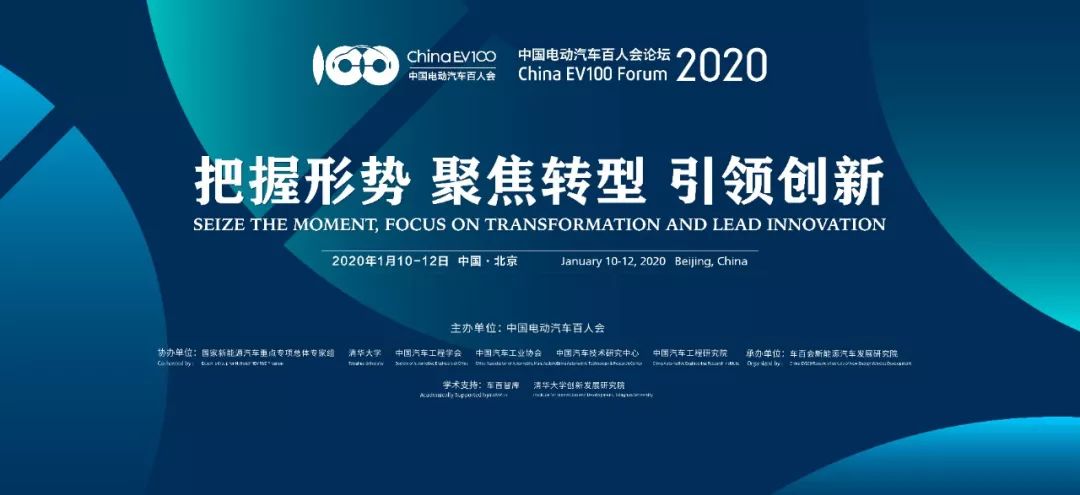

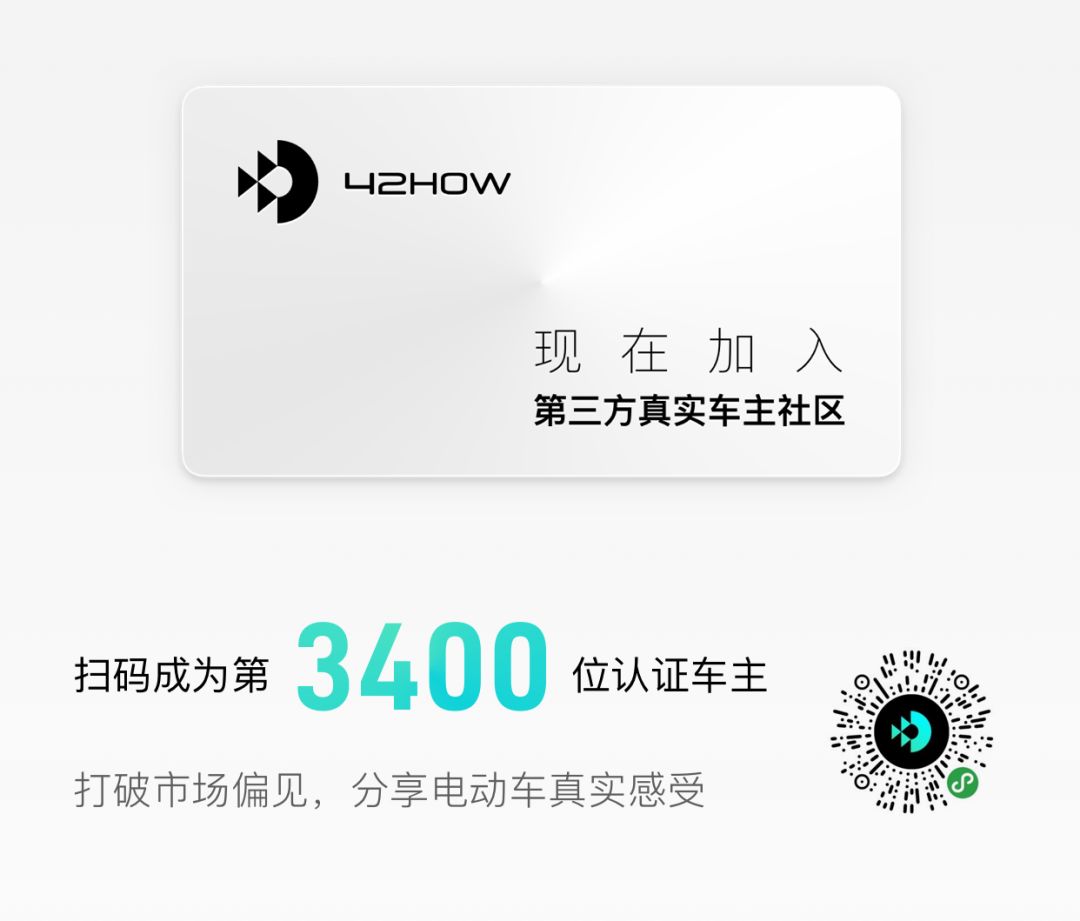
“`
This article is a translation by ChatGPT of a Chinese report from 42HOW. If you have any questions about it, please email bd@42how.com.
